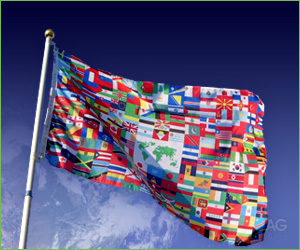Bride and Boy and I are back in the academic saddle as of last week, and I saw my freshman writing classes for the first time. Like many Chinese university students, they were often bored during their seven weeks back home, during the huge annual migration that is the Spring Festival period. However, don’t be afraid, for I helped them by giving reading and writing assignments to do. (Attaboy, teach!) So, then I had 324 pages of journal writing to read. (Doofus!) I learn a lot about China and my students that way, though, and not only about which ones are most inclined to plagiarism, and which kids actually try to read in English instead of watching a movie. (You read The Godfather? Puzo’s thick, complex, racy novel? Really?)
Their first new assignment of the term is the argumentative essay. So what do you really feel strongly about? This is often a tough question for kids here, as they are not trained to think critically, and Chinese life requires acceptance, waiting and there-is-no-why (mei you wei shenme) in quantities that North American students can’t imagine. I gave examples and prompts. I asked, for example, Who is the proper owner of the Diaoyu islands? and quickly answered China, of course! and they all smiled at the obviousness of the answer. But when I mentioned that every Japanese student would “think” otherwise, oh, and by the way, that Taiwan is closer than either China or Japan and, yes, Taiwan does not think of itself as being part of the mainland — well, the brows furrowed a little. They started to get where I was going with this: opinion, argument, mind-sharpening, “to learn to write is to learn to have ideas”, as Robert Frost once said.
It put a crease or three in my forehead, too. How do we know when we are really THINKING? Practising Buddhists might say that if we don’t learn how to quiet the scheming and chatter of our “monkey minds”, we can never ponder the deeper meanings of anything. Advocates of multilingual skill argue that if you only speak one language, you can’t truly know that your “thinking” isn’t really just a mental mash-up of all the jingles, pop tunes, clichés, slogans, buzz words, hot gossip and conventional phrase-making that we hear every day. And if your citizenship dictates what and how you think, then there’s no thought at all.
“My country, right or wrong.” Many Americans believe, unquestioningly, that
we live in the greatest country in the world! No caveats, no qualifiers, no room for grey. Canadians are sure, by and large, that though the USA is richer and stronger, we are better than them, not just in hockey — though this is of desperate importance! — but also socially, morally. Chinese citizens are firmly convinced that China is very different from other countries, and we aren’t like other peoples. (It’s one of the ways, incidentally, that China is remarkably like the U.S.A. Both countries believe profoundly in their exceptionalism, whether politically or socially.)
Do you share one of these convictions? Do you have other beliefs that are yours strictly because of where you were born? Living in China has not only taught me what the Chinese unthinkingly believe, but helped me to see my own unexamined assumptions. I see Canada a little differently now. Often, the view is spectacular, and I’m grateful, but I sometimes see things I don’t like. (Complacency. Entitlement. A little smugness, sometimes.)
I believe in the necessity of ascertaining truth for oneself, but how do you
“know of thine own knowledge and not through the knowledge of thy neighbour”, as the Physician prescribed, when most of us have a pretty rough time deciding which is the best toothpaste or investment plan? The examined life is no trip to the drive-through, but it’s worth a quick look. (Or a never-ending one.)




P.S. It’s always an enjoyable read here. You make me laugh.
Dang, dude. You pushin’ the boundaries of thought in that classroom, ain’tcha?
It is one of the most difficult challenges I faced in the Chinese classroom. Getting them to think is one thing. Getting them to organize those thought into a coherent paper (or paragraph, for that matter) is a challenge. I will follow closely to see how that goes.